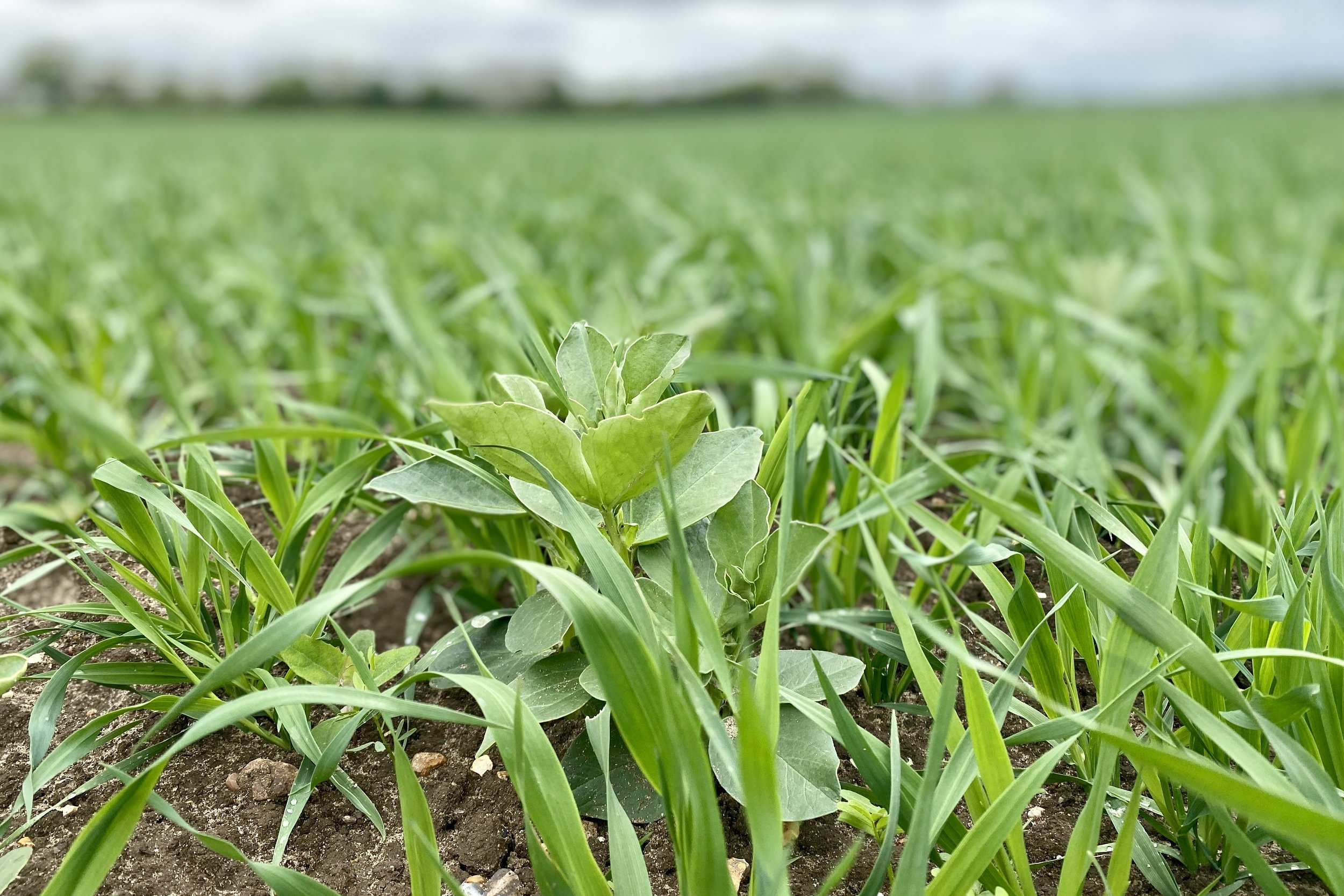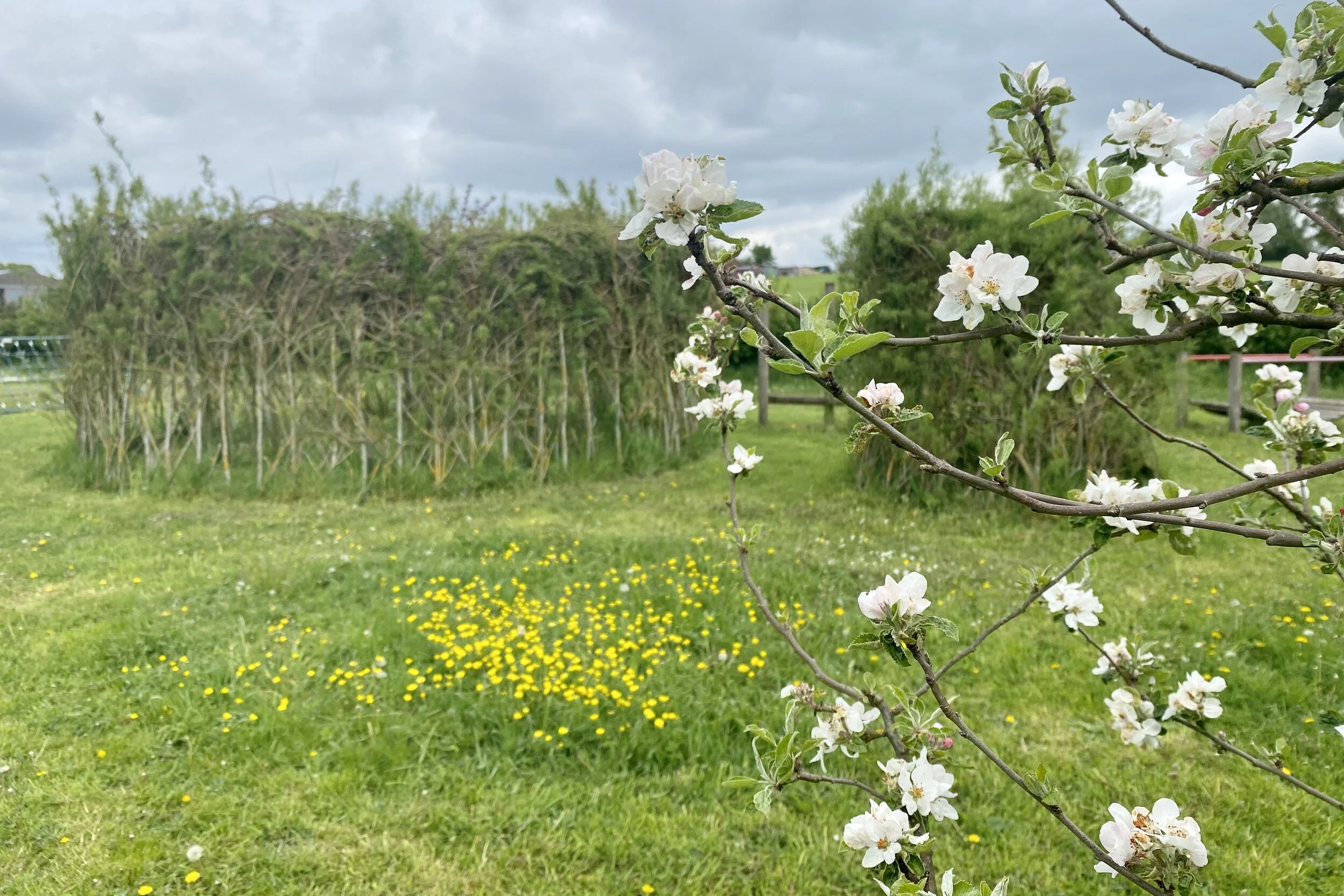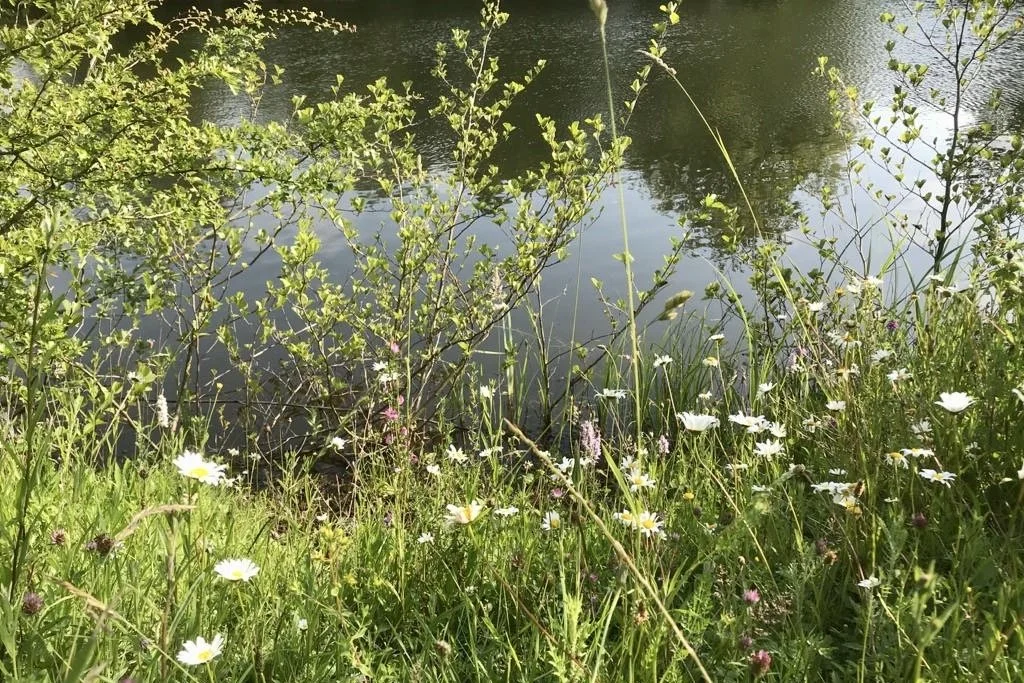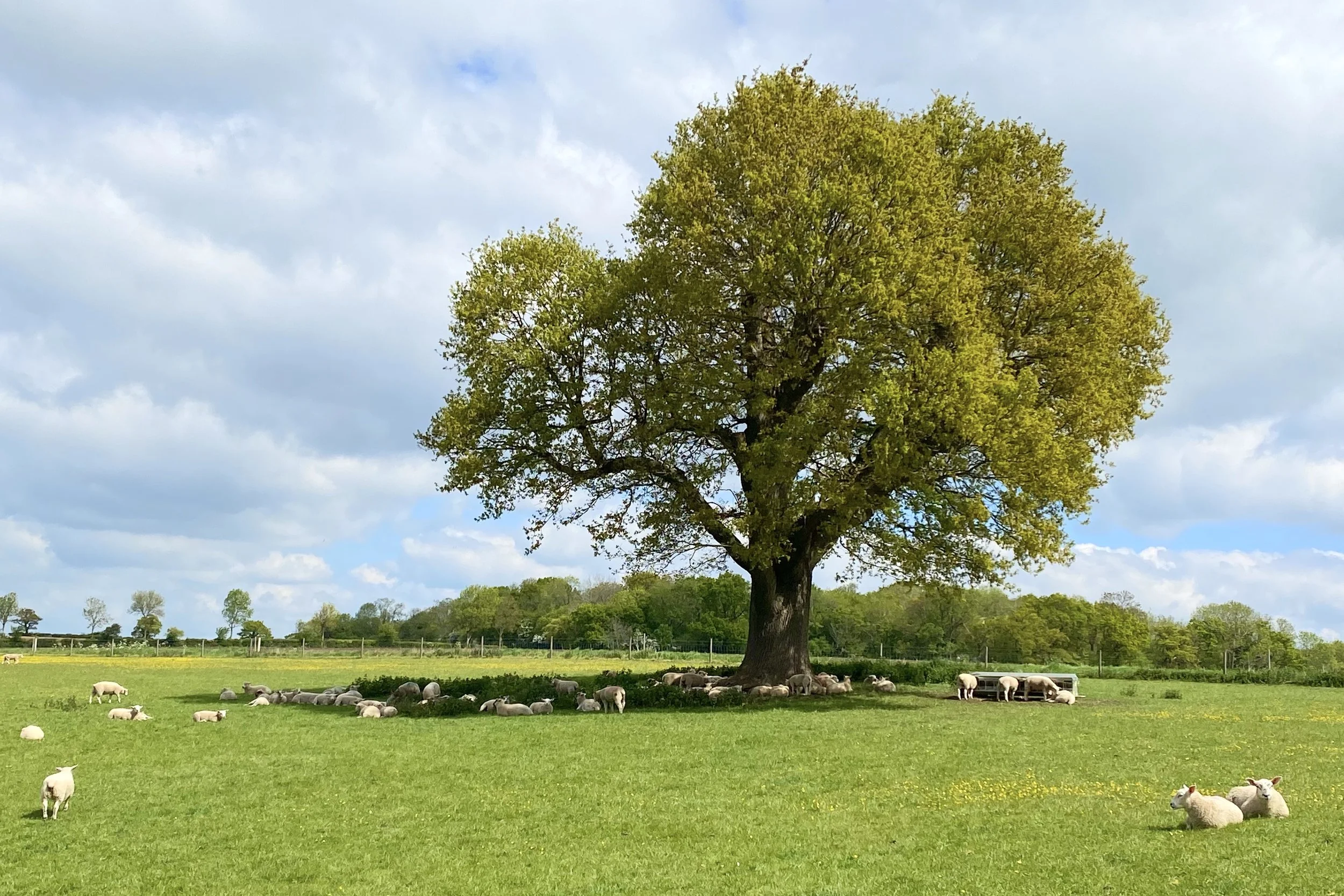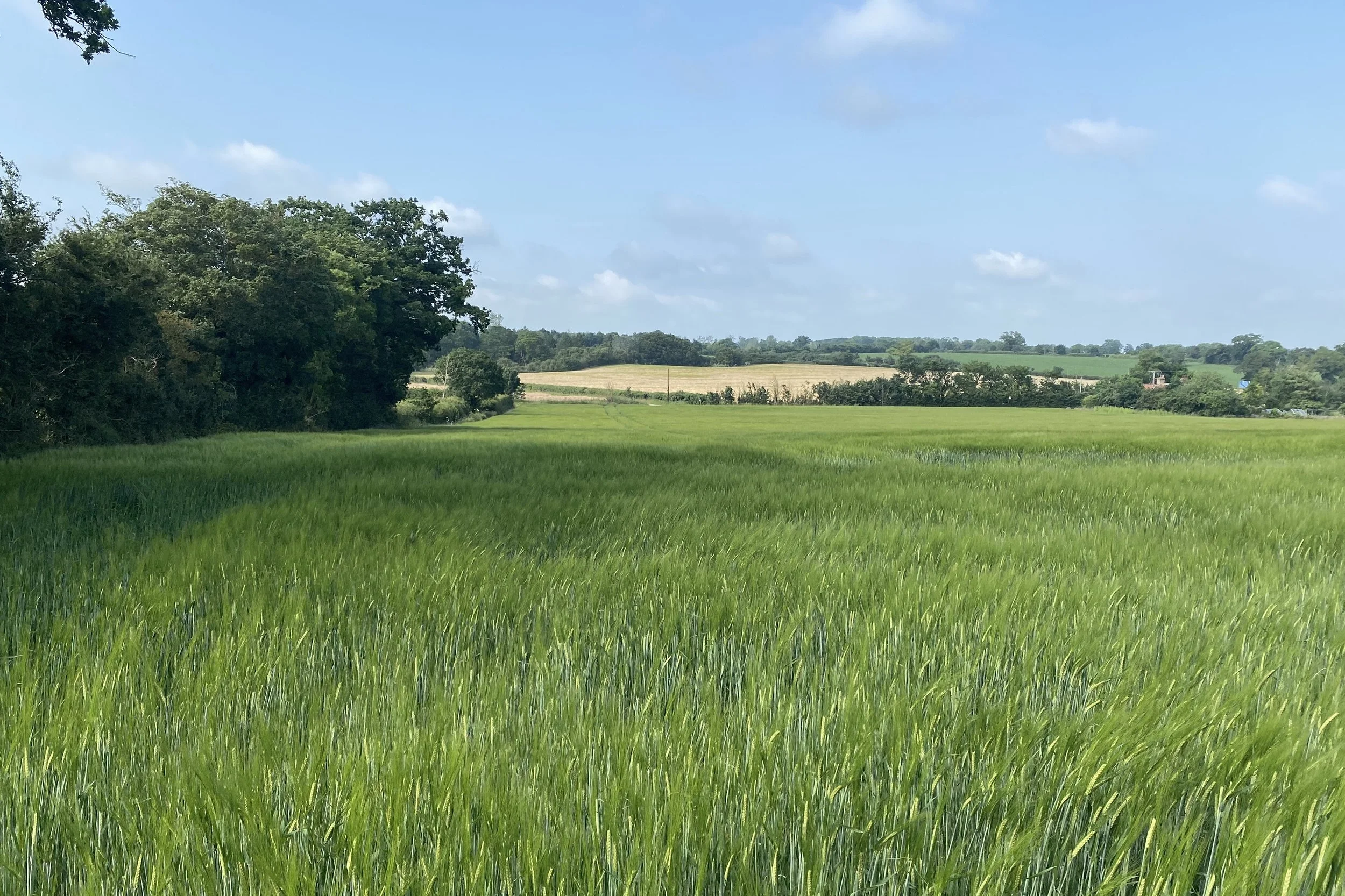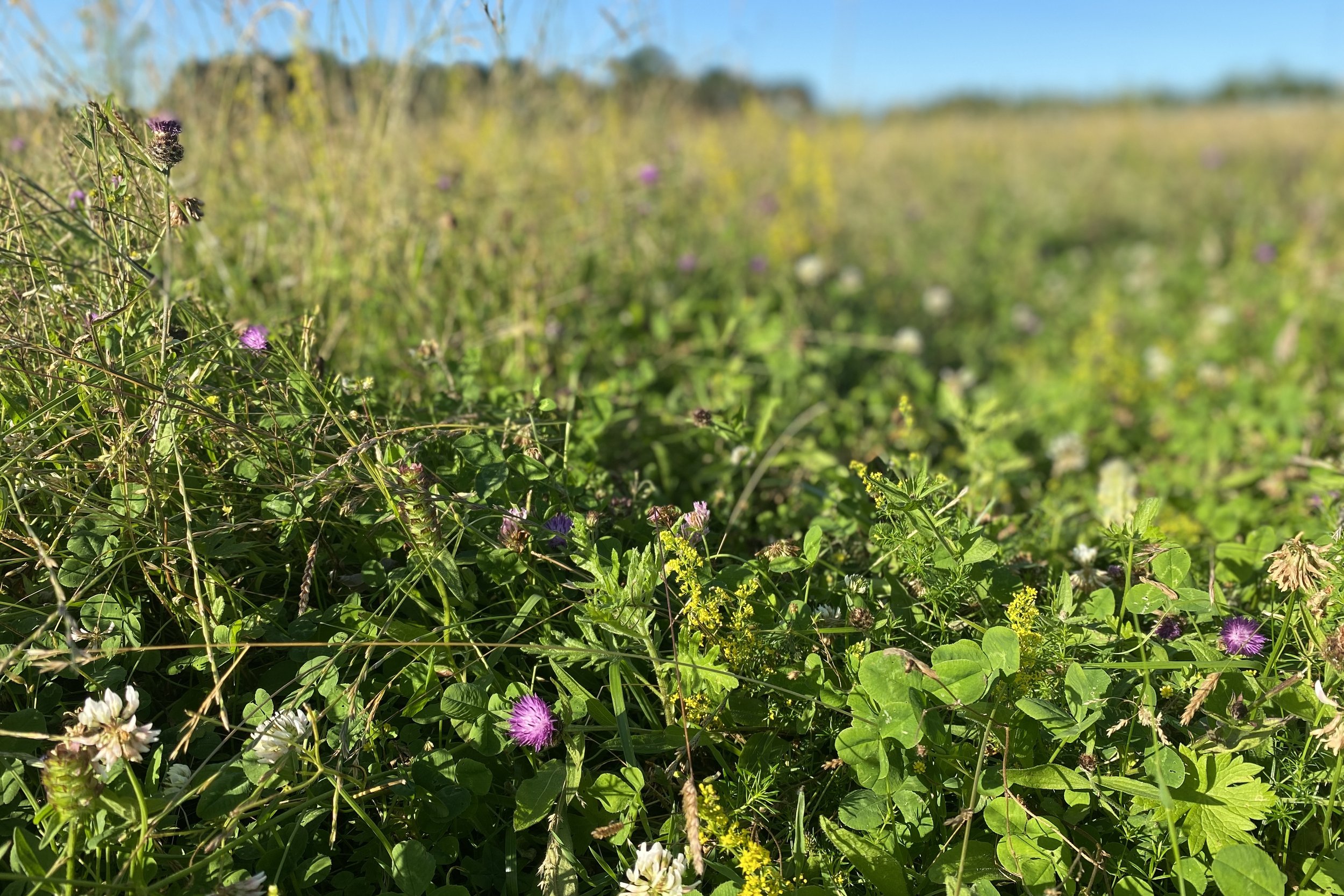
Great Glemham Farms is a family-run partnership in East Suffolk. It is made of six home farms which together form part of the Vale of Great Glemham catchment, feeding in to the River Alde. The farms together support a rare diversity of landscapes, soil types, field patterns, habitats, hedgerows, woodland and water bodies.
Over four generations, the partnership has managed the farm as a living landscape of productive arable and livestock farming combined with care for the environment and community benefit. All are managed with respect for the historic farm and landscape character and beauty. We embrace regenerative concepts within what is a diversified farm business and plan for more.
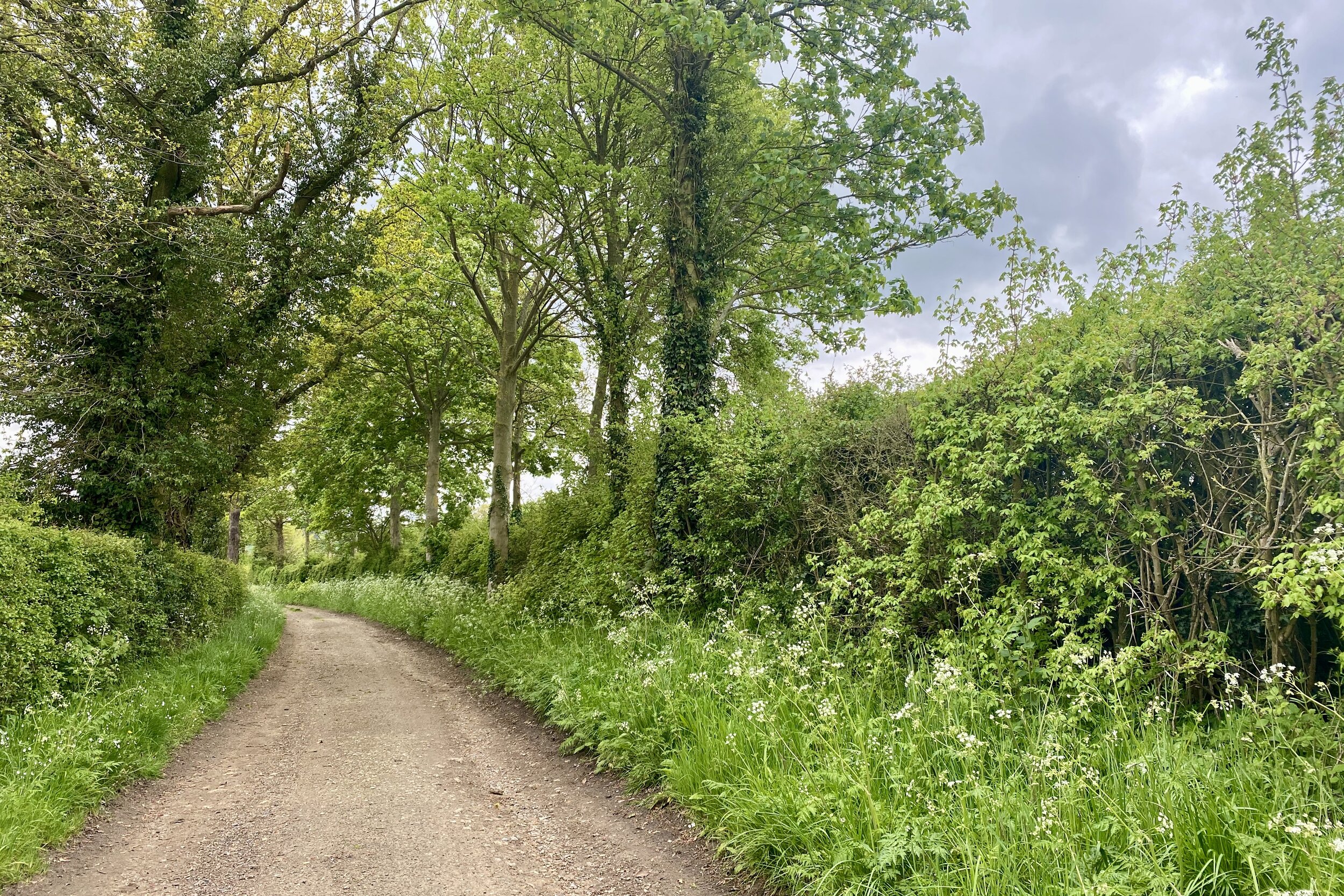
“At a time when we need more regionally-appropriate examples for others to learn from and exchange with, Great Glemham Farms is in a key position to play a flagship role in leading Suffolk and the East of England toward the kind of relationship with nature that we cannot afford to lose”
Marina O’Connell, Adviser to Great Glemham Farms and author of Designing Regenerative Food Systems (2022)
The vision
As a family partnership, we share a deep commitment to the care and creative management of the farm’s natural resources to produce food, enrich biodiversity and provide benefits for community health and well-being.
We embrace our responsibility to work with our contract partners to grow cereals and other crops in ways that care for the natural environment and provide shared access and wider public benefits. By taking a regenerative approach that begins with the health of the soil, we are contributing to the reduction of pollution, sequestration of carbon and conservation of water. We have also taken a lead in the provision of provision of renewable energy.
Six key themes:
Soil health for sustainable food
Community well-being
Water conservation
Biodiversity enrichment
Restoring historic landscapes
Carbon care
Soil Health - agroecological approaches for sustainable food production
Over the decades, we have improved soil health through careful rotation, water management, and field scale manure and compost application. We are now introducing a range of agroecological cultivation practices that further improve the health of the soil, including minimum and zero till, cover crops and rotational systems.
Community well-being - access to nature, learning and livelihoods
We provide a range of public benefits, including permissive footpaths with fruit tree planting, creating a two hectare community green space and nature-play area, and providing educational and arts activities at White House Farm.
Water conservation - enhancing water conservation, management and quality
Great Glemham Farms is within a Catchment Sensitive Farming high priority area. Farm-wide water management and water-sensitive cultivation have been priority and informed the Vale of Great Glemham water strategy developed in 2018 in partnership with Natural England.
Biodiversity enrichment - biodiversity and wildlife habitats and protect target species
We are dedicated to enriching biodiversity through continued habitat creation and wildlife habitat interconnection across the farmed landscape, with a focus on rare and protected species.
Historic landscape - care for the heritage and beauty of the landscape
We manage a range of historic landscapes, including: traditional arable fields and tracks; farm parkland with its network of smaller enclosed paddocks; grazing and droving meadows; ancient oaks and woodland strips; water meadows and wetland marsh paddocks; and historic orchards.
Carbon care - Generating renewable energy and capturing carbon
As a farm we play our part in providing renewable energy and capturing carbon from the atmosphere back into the living soils. Alongside roof-mounted solar panels, have created a 20 MW solar farm that integrates wildlife management and livestock grazing within its management plan.

“Great Glemham Farms is a microcosm of much of the lands over East Anglia, so what is created here can be used as a demonstration for other farmers as how to manage their land for positive environmental, social and economic outcomes.”
Marina O’Connell, Adviser to Great Glemham Farms and author of Designing Regenerative Food Systems (2022)
A living landscape
Great Glemham Farms is an important natural water catchment feeding into the river Alde, with an exceptional variety of soil types transitioning from clay around the upper rim of the catchment, leading down through light sandy soils to richer loamy land. This land provides a rich mosaic of different habitats: woodland, water meadows, small pasture meadows, arable fields, 27km of hedgerows, over 20 historic ponds, various sandpits, and managed nature reserves, all of which contribute to biodiversity. Located in one of the driest regions of country, the partnership offers a useful example of opportunities for the protection and enhancement of biodiversity as part of a transition towards agroecological food-growing practices.
Over the last few decades, we have focused on providing high quality food in the context of careful management of the farms’ soil, water and biodiversity through regular field-application of organic matter, rotational cropping, field drainage that allows for both aquifer replenishment and the preservation of the vitality of our ponds and ditches. The hedge-planting and maintenance of hedges and hedgerow trees has created a living framework around cultivated fields, permanent pasture, woodland and nature reserves. White House Farm has been home to a wide range of educational, art events and rural business enterprises. More recently, we have created of a solar farm that integrates wildlife management and livestock grazing within its management plan.
There is currently over 40 hectares of managed nature reserve. a County Nature Reserve on a former airfield, in amongst 27km of planted hedgerows, 35 hectares of woodland and over 20 historic ponds. The Landscape Conservation Plan for the 28 hectare Solar Park has become a benchmark for good practice.

“I would consider that Great Glemham Farms is one of the best placed in Suffolk that I've seen on a landscape scale to help turtle doves and nightingales due to the large amount of suitable nesting habitat on the farm and in the surrounding landscape.”
The team
The farm partners bring a range of professional expertise in the fields of farming, environmental land management, the arts and architecture, sustainability research and policy, and rural business development. The arable contracting is carried out by Nick and Roger Watts of FS Watts with guidance from a circle of Farm Advisers, including Keith Girling, Dr Julia Wright, Marina O’Connell. We also benefit from regular guidance from the Farming and Wildlife Advisory Group, Natural England,
The farm team includes long-service awardees Antony Heffer and Michael Salter. Day to day environmental stewardship and livestock care is carried out by Charles Steed with support from his daughter Holly Steed, who is training in farming at Otley College. The office is co-ordinated by Kathy Broyd.
Farm partners are actively involved in diverse networks and initiatives, with roles including: Regional Director for Suffolk of CLA, Co-Founder and President of the Aldeburgh Food and Drink Festival, Chair of Natural England’s Grazing Forum, Vice President of CPRE and instigator of their Food Webs campaign, Founder of Alde Valley Spring Festival, Co-Founder of WildEast and co-founder with Dr Miche Fabre Lewin of Touchstones Earth. Partners are members of LEAF, NFU, CPRE, as well as being Research Associates at the Centre for Agroecology, Water and Resilience (CAWR) at Coventry University and co-originators of Planet Possibility with the Chartered Institution of Water and Environmental Management.
We have a strong track record in delivering a comprehensive range of successful landscape and conservation projects and initiatives, including participation in the Farm and Horticultural Development Scheme, the Suffolk River Valleys ESA and the LEAF programme. Alongside our own re-investment into farm ponds and waterways, the Partnership was short-listed for Water and Environment Grant (WEG) for its proposals to revitalise seasonal streams and historic water bodies within the Vale of Great Glemham. Most recently, our 10-year HLS Agreement delivered a wide range of ecological gains and public benefit, receiving various awards including Finalist 2008 Future of Farming Awards. Runner-Up 2009 FWAG Kerr Cup Farm Conservation Competition, Suffolk Agricultural Awards 2010 Special Award for Conservation and the Regional Winner 2012 RSPB Nature of Farming awards.


